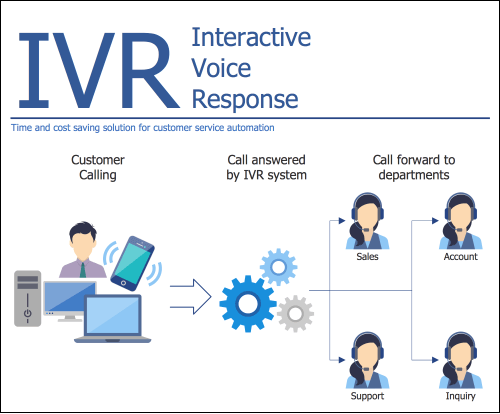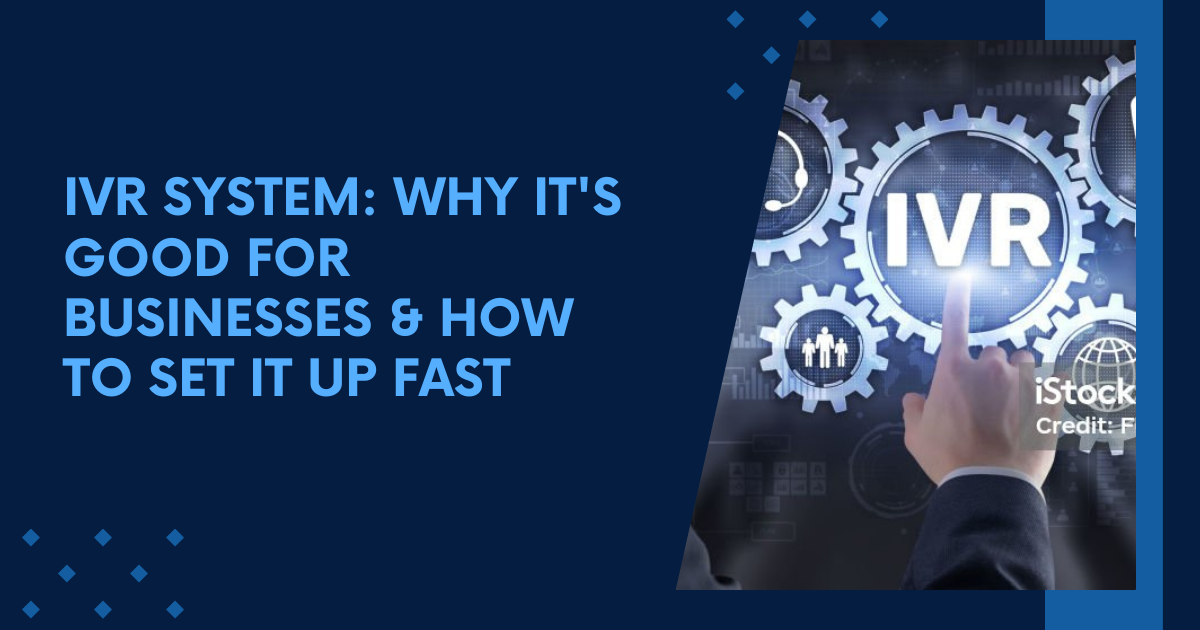What is IVR?
Interactive Voice Response (IVR) is an automated telephony system that interacts with callers, gathers information, and routes calls to the appropriate recipient through voice or keypad inputs. IVR systems use pre-recorded voice prompts and menus to present options to callers and collect their responses, allowing them to navigate through the system to reach their desired destination.
Setting Up IVR for Your Business:
Implementing an IVR system for your business is feasible and can offer numerous benefits:
Improved Customer Experience: IVRs provide a structured pathway for callers, enabling them to quickly reach the department or person they need without waiting for a live agent. This improves customer satisfaction by reducing wait times and enhancing efficiency.

Efficient Call Routing: IVR systems can route calls based on caller input or collected information, directing them to the most appropriate department or individual, thereby streamlining operations.
24/7 Availability: IVR systems can handle calls outside regular business hours, providing basic information or routing calls to voicemail or on-call staff, ensuring round-the-clock availability.
Setting up an IVR typically involves selecting a service provider or utilizing software that allows customization of the IVR menus, prompts, and call routing based on your business needs.
Does IVR Replace a Call Center?
IVR systems and call centers serve distinct purposes and can complement each other:
IVR as a Routing Tool: IVR systems efficiently handle call routing and basic inquiries, providing initial support and gathering necessary information before transferring calls to appropriate agents or departments in a call center.
Call Center for Complex Interactions: Call centers are staffed with live agents capable of handling complex queries, providing personalized assistance, and addressing customer concerns that may require human interaction. In most businesses, a call center is set up using call queues along with a greeting and music (or ad on hold). An available agent can grab a call and interact with the customer.
Conclusion:
IVR systems are valuable tools for businesses seeking to streamline call routing, improve customer experience, and ensure 24/7 accessibility. While IVR systems enhance efficiency by automating routine tasks and routing calls, they work in tandem with call centers that offer personalized customer service for more intricate interactions.
Ultimately, the integration of IVR systems can significantly benefit your business by optimizing call handling, improving customer satisfaction, and ensuring efficient operations. However, it’s essential to recognize that while IVR systems are effective in managing specific tasks, they work best when complemented by the human touch and expertise provided by a call center.





Leave a reply